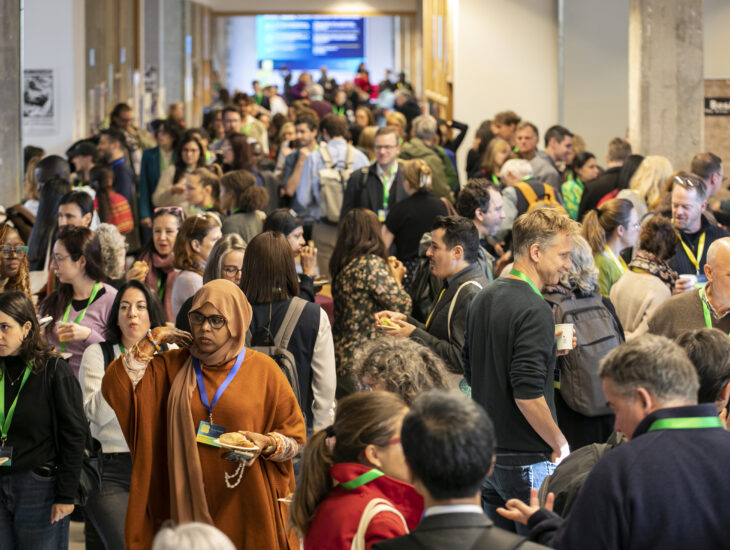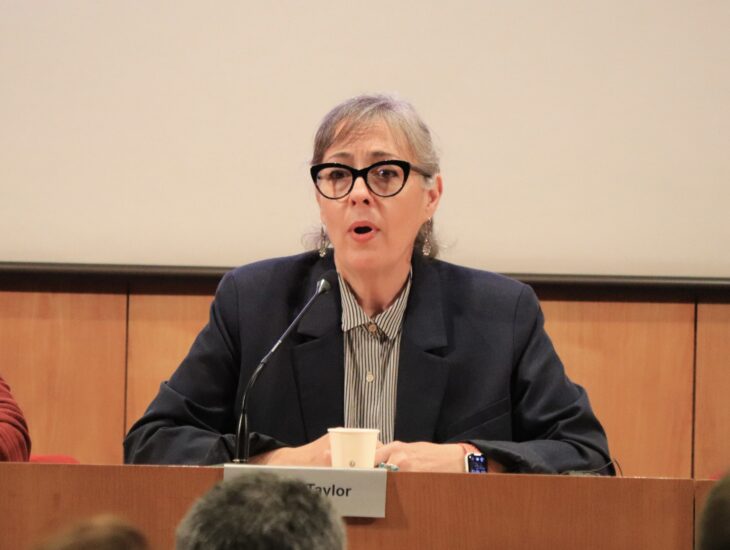The international seminar “Post-conflict scenarios in Colombia: Agenda, opportunities and road map” concluded yesterday. It was organized by ICIP with the support of the Catalan Agency for Development Cooperation, the Barcelona City Council and the Barcelona Provincial Council. The seminar brought together some thirty diverse Colombian actors (political actors and actors from the Administration, academics, actors from civil society and indigenous communities, and economic actors) accompanied by international experts and representatives of Catalan society.
The findings of the seminar were presented in an event at the Palau de la Generalitat, which attracted a large turnout. The presentation was given by Marta Macías, director of the Catalan Cooperation Agency; Rafael Grasa, director of ICIP; and researchers Gustavo Duncan, Luis Jorge Garay, María Victoria Llorente and Jenny Pearce.
ICIP president Rafael Grasa highlighted the importance of the seminar considering that the peace negotiations between the Colombian government and the FARC were taking place at the same time. He said that “this seminar was not about making peace; that is what they are doing at the negotiating table in Havana. It’s about building peace, which requires a different timing, a different agenda, and different instruments.” The president of ICIP also pointed out that “road, opportunity, and management of expectations” were some of the words that were repeated the most often during the seminar.
The seminar was organized around six core concepts. The first one was “Peacebuilding in Colombia: agreements and public policies compared. The humanitarian dimension.” The second one was “The political dimension: political system, decentralization and territorial actors.” The third one was “Development and the economic dimension (conception of development, rurality, land, illicit crops, infrastructure).” The fourth one was “Non-political actors and the social dimension: participation, human rights, indigenous and afro-descendent communities.” The fifth one was “Politics of memory and past: reconciliation as a future horizon,” and the sixth one was “Security and defense policies. The role of actors who are not directly political.”
ICIP president Rafael Grasa, Barcelona Councilor of Presidency and Territory, Jordi Martí, and the Deputy Councilor for Presidency of the Barcelona Provincial Council, Joan Carles Garcia addressed the closing event of the seminar. Former Israeli foreign minister, Shlomo Ben Ami, delivered a closing speech entitled “Reflections on the post-conflict in Colombia,” in which he used his experience in the mediation of conflicts in the Middle East, as well as his knowledge about peacebuilding, to talk about Colombia. Ben Ami focused on the asymmetry of the actors in the peace process, and the difference in timings and interests of the actors. Ben Ami stated that, to reach an agreement, “it must be clearly understood that all parties have to make concessions” and he highlighted the strong institutionalization of Colombia as an advantage for the peace process.
ICIP president Rafael Grasa and Lluís Bertran, general secretary of the Department of Governance, addressed the opening event of the seminar on Monday, May 5. In addition, Professor John Paul Lederach delivered an inaugural lecture.
Lederach, Professor of International Peacebuilding at the University of Notre Dame, presented his study on the comparison of peace processes. Lederach has carried out extensive research on the peace agreements of the past few decades and he focused on conflicts after agreements were signed. According to the academic, no agreement has been entirely implemented; implementing them has taken much longer than expected; the significant issues of the agreements have been implemented even more slowly; and, the more robust the implementation, the more the quality of life of the people who live in the conflict zone has improved.
08.01.2014




